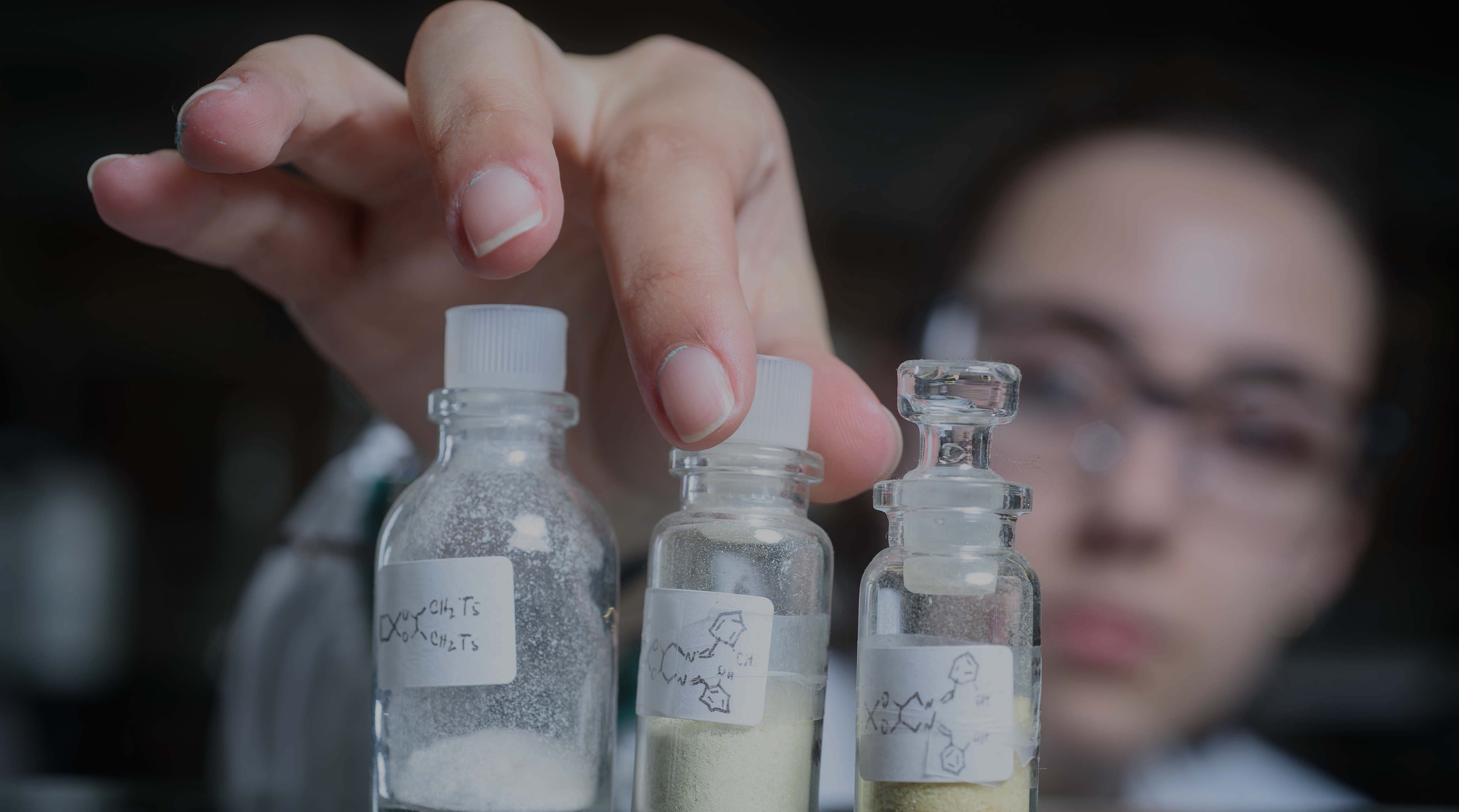Thermodynamics and Solid State Chemistry
Our research is centered in solid state chemistry of organic compounds, aiming at the design, search, and selective preparation of solid forms. Active pharmaceutical ingredients, APIs, are the main targets of research owing to the potential impact of dissimilarities in physico-chemical properties of the different solid forms on API stability and effectiveness.
Engineering multicomponent pharmaceutical solid samples - co-crystals, salts, solvates, solid solutions, binary eutectics - aiming at biopharmaceutical performance improvement or dual-drug therapy, is one the targets of research. A special emphasis is placed on co-crystals investigation, namely on the effect of co-former structural changes and synthon competition on co-crystal formation capability, and on the potential use of co-crystals for chiral resolution.
Polymorphism of organic APIs and other organic compounds (with emphasis on chiral ones, both enantiomers and racemates) is also being addressed. Solvent effects on polymorph crystallization and rationalization of the ability of molecular compounds to give rise to plastic crystal mesophases are topics being investigated.
Polymorphism of organic APIs and other organic compounds (with emphasis on chiral ones, both enantiomers and racemates) is also being addressed. Solvent effects on polymorph crystallization and rationalization of the ability of molecular compounds to give rise to plastic crystal mesophases are topics being investigated.
PhD fellowship offer
An application for a research fellowship to pursue a PhD project is opened at the University of Coimbra.
The project will be conducted jointly in two laboratories of the CQC - Coimbra Chemistry Centre:
Laboratory of Thermodynamics and Solid State Chemistry (LTQES)
Laboratory for Molecular Cryospectroscopy (LMC)
Project title
Development of persistent high-spin organic molecular materials
reference IT137-25-488
Scientific supervision/coordination of the grant:
Mário Túlio dos Santos Rosado
Cláudio Manaia Nunes
Work Plan / Goals to be achieved:
The research plan aims to investigate and characterize persistent open-shell organic molecules, as well as develop strategies to extend the lifetime of their high-spin configurations, specifically using crystal engineering techniques. Strategies for steric and electronic substitution, confinement by encapsulation, or crystal packing can be pursued. The persistence of the molecular electronic spin state, proven by isolation spectroscopy in cryogenic matrices, will be necessary for their physicochemical characterization using spectroscopic and solid-state analysis techniques, as well as for proposed applications as new magnetic materials, for example in sensors, or as quantum bits.
In addition to experimental and computational tasks and collaboration with advisors in writing scientific articles directly related to the project, the fellow must also commit to collaborating in the organization and management of the Thermodynamics and Solid-State Chemistry and Molecular Cryospectroscopy Laboratories.
The initial grant duration is 12 months, renewable for additional 3 years.
Please see details and apply at
https://apply.uc.pt/IT137-25-488
https://euraxess.ec.europa.eu/jobs/385369
Coordinator
Maria Ermelinda S. Eusébio
The Thermodynamics and Solid State Chemistry Laboratory is dedicated to the research and training of human resources in the areas of thermodynamics and solid state chemistry. A multidisciplinary approach using thermal, spectroscopic and computational methods is used in the fundamental and applied investigation of solid forms of organic compounds. Current research is focused on the thermodynamic and structural study of polymorphs and multicomponent pharmaceutical solids, with emphasis on solvent effects in the selective crystallization of polymorphs, on the rationalization of mesophase formation and on the investigation of co-crystals and co-amorphous phases with enhanced biopharmaceutical performance.
